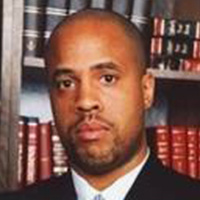Fountain Hills Felony Lawyer, Arizona
Sponsored Law Firm
-
 x
x

Click For More Info:
-
Kenneth S. Countryman, P.C.
1130 North 2nd Street P.O. BOX 11077 Phoenix, AZ 85004» view mapCriminal Defense Law A Law Firm You Can Trust
Let Kenneth S. Countryman, P.C. handle your criminal defense legal matters.
800-978-0861
John Schill
✓ VERIFIEDIf you've been arrested for driving under the influence (DUI) or another criminal offense in Phoenix, Arizona, who will you bring to the fight? Workin... (more)
Bradlee Rideout
✓ VERIFIEDAttorney Brad Rideout is the managing attorney of Rideout Law Group. Brad got his undergraduate degree from Arizona State University, then got his law... (more)
Ryan McPhie
✓ VERIFIEDGrand Canyon Law Group (formerly McPhie Law) was created to fight for the little guy. We pride ourselves on being the law firm that fights hard and pu... (more)
Jeremy S. Geigle
✓ VERIFIEDJeremy earned his undergraduate degree from the Marriott School of Management at Brigham Young University in 1998. He then attended Pepperdine Univers... (more)
Kristen M Curry
✓ VERIFIEDKristen Curry has been certified as a Criminal Law Specialist through the State Bar of Arizona for the past 18 years and has extensive jury trial and ... (more)
FREE CONSULTATION
CONTACTFREE CONSULTATION
CONTACT Kenneth Countryman Phoenix, AZ
Kenneth Countryman Phoenix, AZ Practice AreasExpertise
Practice AreasExpertise






